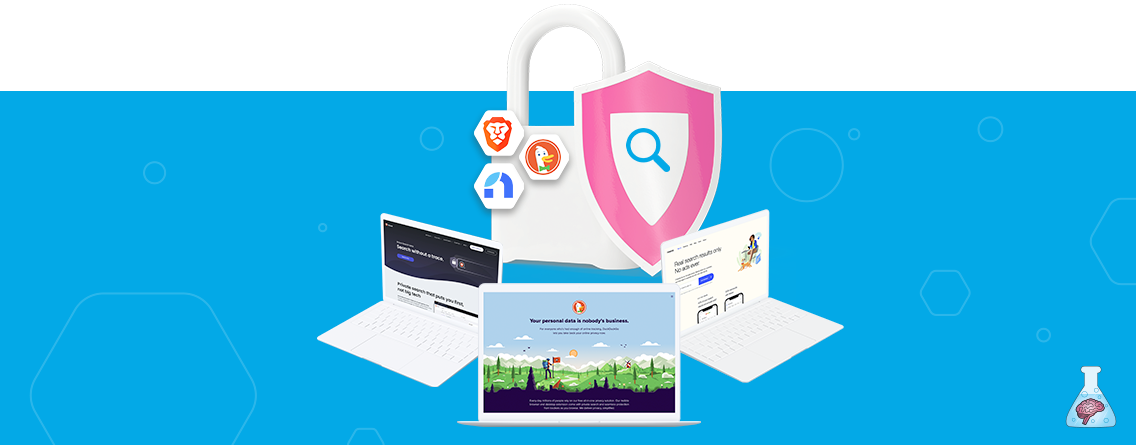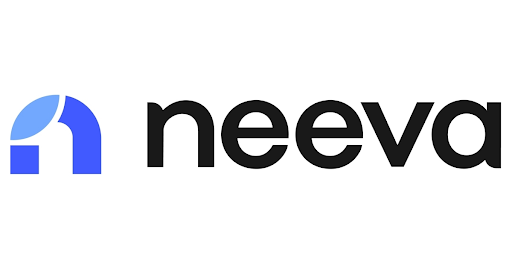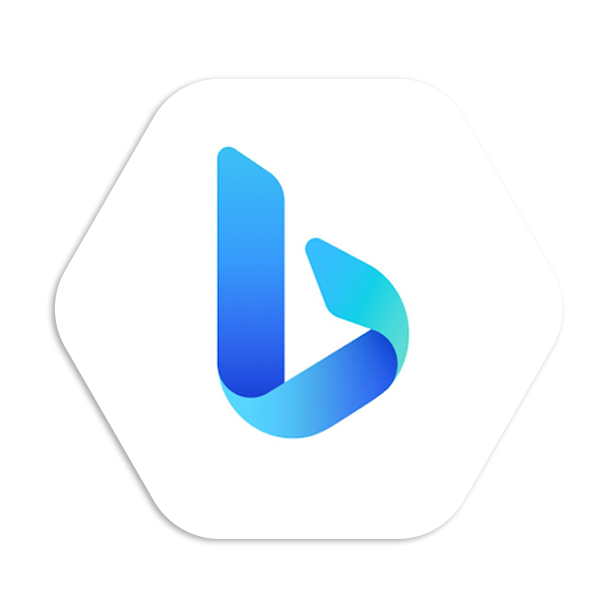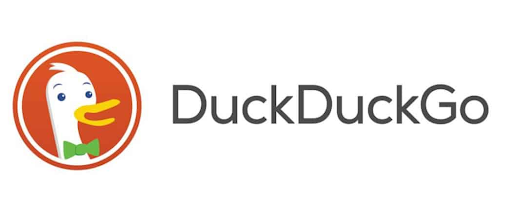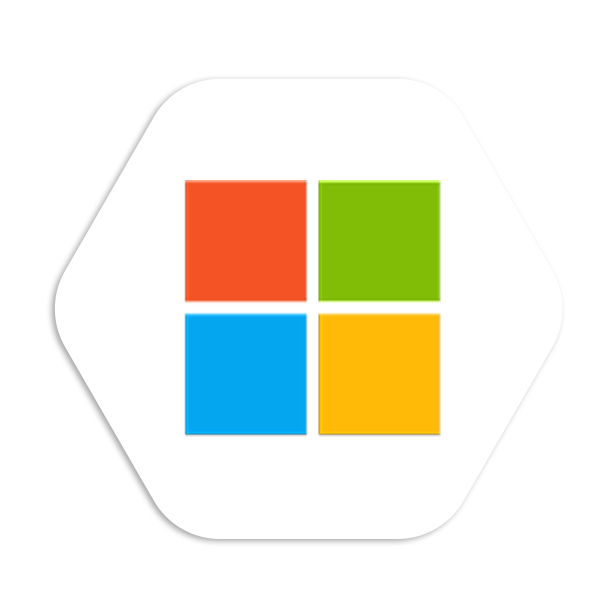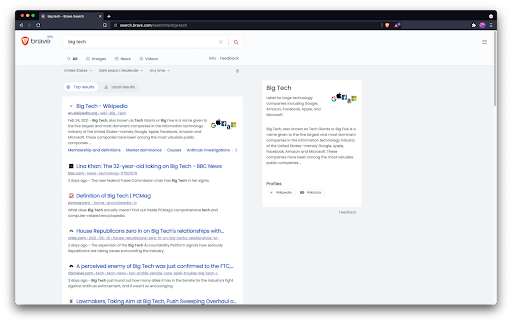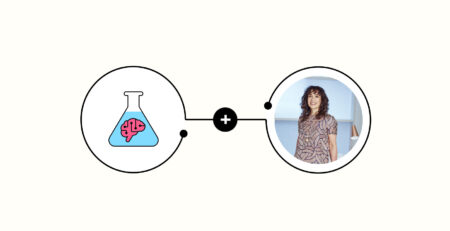The rise of privacy-first search engines: a marketer’s guide to Neeva, Brave, and DuckDuckGo
Consumer privacy is a major concern across every component of today’s marketing ecosystem. Brands, data providers, and advertising platforms are each attempting to deliver powerful, personalized experiences while navigating rapidly evolving data legislation. Apple drastically reduced mobile targeting and measurement opportunities with the release of iOS 14.5 only a few weeks ago. While third-party cookies recently received a two year “stay of execution,” their reliability will continue to degrade. Savvy brands are working to ensure their first-party data is robust and portable in order to continue delivering customer-first marketing strategies.
But many consumers aren’t waiting for laws and adtech to catch up with their desire for privacy. They’re changing their digital habits and proactively adopting privacy-first behaviors that include using alternative search engines. In the United States there are now three major privacy-focused search engines competing to steal users (and queries) from Google and Bing: Neeva, DuckDuckGo, and Brave Search.
While aggregate volume for these engines is small, it is growing. In order to ascertain the impact of shifting search entry points and future-proof search marketing for changing user behaviors, it’s important for marketers to understand the complex paid and organic opportunities across each of these emerging search engines.
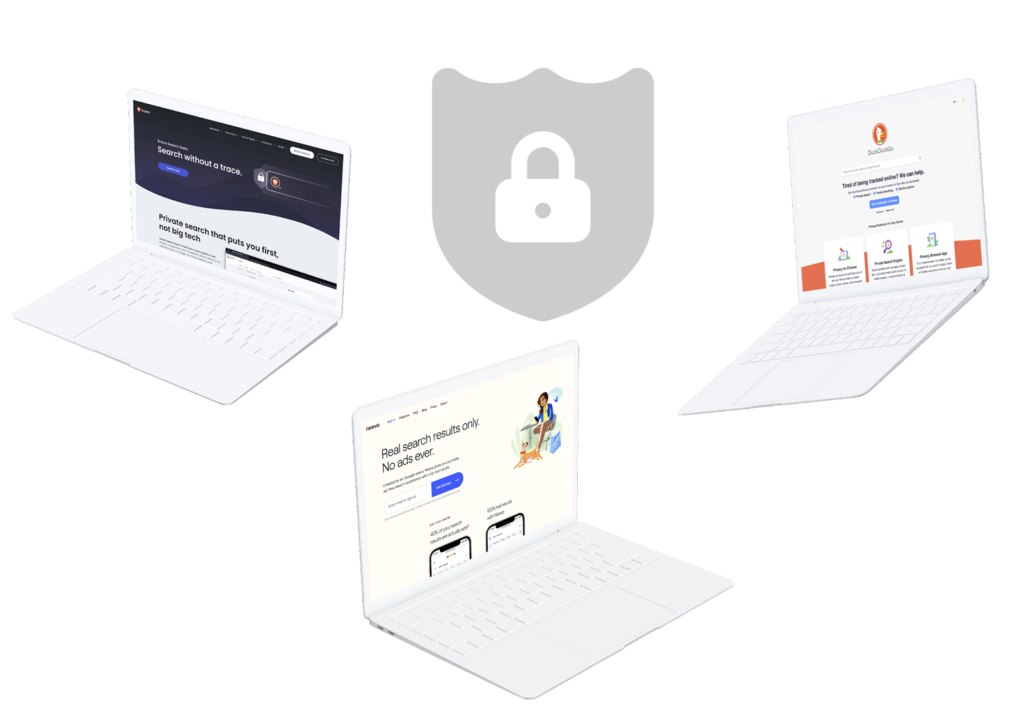
Neeva: Ad free, subscription-based, privacy-first, and built on Bing results
After raising millions of dollars in funding and spending months in beta testing, new search engine Neeva finally launched to the public on June 29th, 2021. Neeva’s tagline is “Ad-free, private search”, and its home page is filled with strong statements about the drawbacks of search advertising aimed directly at Google. This is an especially interesting market position because the two founders of Neeva are former Google advertising execs who helped build the ad platforms that delivered more than $170 billion in advertising revenue across Google Ads and YouTube last year.
Instead of leveraging the longstanding (and now heavily scrutinized) model of monetizing online traffic with ads, Neeva is instead going entirely ad free and instead charging its users a monthly subscription fee of $4.95. It’s a bold approach to ask internet users to pay for a feature they’re used to getting for free, but Neeva’s founders are betting that every privacy issue faced by other search and social platforms will make customers more willing to pay for a premium experience where their data isn’t sold or monetized at all. In fact, they’re playing up their pricing model as a strength, touting that “Because you pay for Neeva, we’re accountable to you (never advertisers).”
The Neeva marketing opportunity:
While there are no paid search ads on Neeva, there’s plenty of potential for organic rankings and traffic–and marketers with good SEO practices are already set up for success. Neeva search results feature structured data from sites like Wikipedia, IMDB, and weather.com alongside “special units” built by Neeva’s own crawler. However, the majority of Neeva’s search content is pulled in directly from the Bing API–so today the best strategy to optimize organic results on Neeva is to simply ensure a site’s content ranks well on Bing.
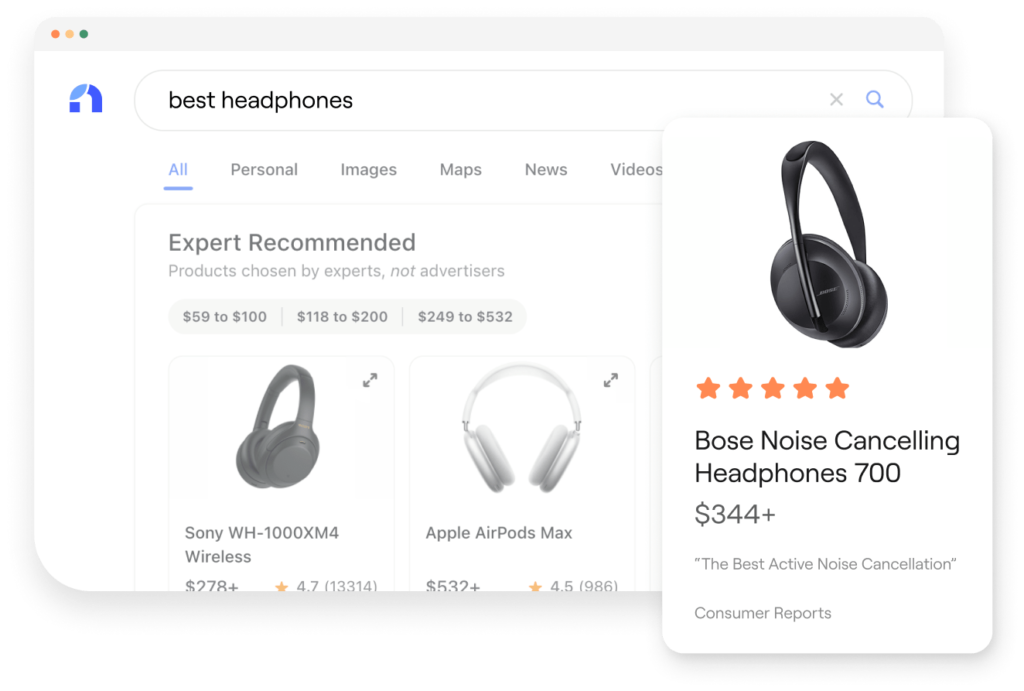
DuckDuckGo: The first privacy-focused engine offers paid and organic opportunities via Bing
Touted as the original privacy-first search engine, over the past twelve years DuckDuckGo has grown from a one-person passion project to a team that is 129 strong. Its foundational principle is a reaction to the growth of secondary contextual signals on Google and Bing search, well in advance of today’s privacy challenges. While DuckDuckGo only holds 2.4% of the search engine market share in the US, it has seen significant user growth over the past two years and answers approximately one hundred million queries daily.
The DuckDuckGo Marketing Opportunity:
DuckDuckGo serves both ads and organic search results, but all SERP (Search Engine Results Page) content is purely based on the current search query and does not incorporate any historical or contextual personalization. While it pulls its organic results from “over 400 sources”, in practice the vast majority of natural search results on DuckDuckGo are sourced from the Bing API, just like Neeva. Thus, all SEO optimizations targeting Bing rankings will deliver organic traffic from DuckDuckGo as well.
Paid search ads on DuckDuckgo are also served via Bing–or, more specifically, by the Microsoft Advertising Partner Network. If an advertiser is running search text ads via Microsoft Advertising they’re either already serving ads on DuckDuckGo or can easily opt in with a few clicks. It’s worth noting that Microsoft’s search partner network is transparent and easily analyzed via in-platform reporting, so marketers can ascertain the impressions, clicks, and cost of their ads served on DuckDuckGo.
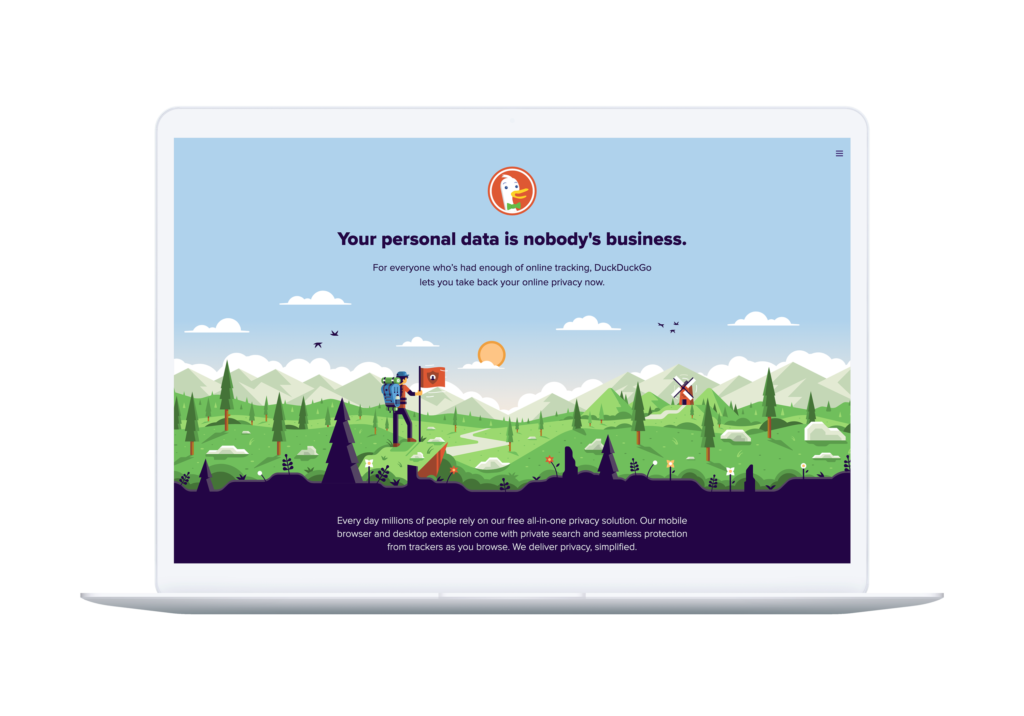
Brave Search: Ambitious, independent, but marketing opportunities yet to be determined
Previously known for their ad blocking browser, Brave has recently expanded its privacy-focused initiatives into a new search engine with a bespoke crawler, transparency in their sourcing from other data sets, and an incredibly ambitious initiative to eliminate bias in search results.
Brave launched the 1.0 version of its browser in June 2019 after three and a half years of testing. Based on Chromium, Brave not only offers ad-blocking but also provides users with the option to choose to see ads served by Brave based on their browsing interests (matched privately on the user’s device). Brave incentivizes users to opt into these ads via a revshare model, where a significant portion of the ad revenue paid to Brave by advertisers is passed along to the user and can then be converted into cryptocurrency or used to “tip” sites whose content the individual accesses frequently. In June 2021 Brave launched the beta test of their new privacy-first search engine.
The technology underpinning Brave Search is much more ambitious than the other privacy-first search engines. Unlike Neeva and DuckDuckGo, Brave has focused on building its own proprietary web crawler, using tech from in their March 2021 acquisition of Tailcat. Asked how the quality of Tailcat-powered results vs Google, Brave CEO Brendan Eich described it as “quite good”, adding that it “will only get better with adoption.”
Standing up a new independent index of the entire web is an even larger challenge than launching a new search engine, so Brave has cleverly set up two solutions to supplement the data from their crawler:
- A transparent Search Results Independence metric which displays the percent of results sourced from other public APIs (like Google and Bing) for the specific search, for a browser’s lifetime searches, and anonymously for all searches to date by every user on Brave. This is framed as a way to balance user experience while still providing information about the level of independence from “big tech” Brave is currently delivering.
- A further option that allows users to opt-into also receiving Google results for long-tail queries that Brave doesn’t yet have refined content for.
These two solutions are a nod to the fact that it will take time for Brave to achieve its ambitions of a truly independent search results page without compromising the transparency Brave is committed to providing its users.
But Brave’s ambitions don’t stop with merely a unique index. They’ve also launched the (cleverly named) Goggles initiative, which aims to empower communities and individuals to create bespoke ranking algorithms built upon their index in order to overcome the single-actor bias other search engines and social networks have been accused of by leveraging crowdsourced ranking criteria. Whether this approach leads to truly unbiased results or merely creates more echo-chambers reinforcing predetermined beliefs will be fascinating to explore – as will whether other engines respond to Brave’s invitation to partner on this initiative.
The Brave Marketing Opportunity:
Brave doesn’t offer paid ads on their search engine yet, but we predict they will begin testing search ads within the next year. These will likely be an extension of the current advertising solutions offered by the Brave browser, so interested brands should begin testing the browser-based ad units in order to define a baseline of potential effectiveness.
SEO optimization on Brave Search will require a different approach than Neeva and DuckDuckGo. Brands can review their current rankings on Brave manually, but should balance the prioritization of Brave-focused SEO initiatives based on how quickly this new engine acquires users and traffic. One specific unanswered question is how Brave’s crawler interacts with a website and the site’s robots.txt file (the first place any web crawler will go to, which informs the web crawlers from Google and other leading platforms about how to crawl the site). We’ll investigate this interaction in the coming weeks and provide recommendations to Brainlabs clients about any suggested changes to the website or to the robots.txt files.
Prioritization of opportunities will be informed by growth & user “stickiness”
The successful creation and launch of two new privacy-focused search engines and the rapid recent growth of DuckDuckGo (4x increase in query volume over the past two years) demonstrate that there is consumer appetite for new search experiences. Each represents new marketing opportunities across both paid and organic search, but the overall impact on the search and marketing ecosystems is yet to be determined. We will continue monitoring each engine to track user growth, query growth, and “stickiness,” and prioritize our search marketing efforts accordingly.

